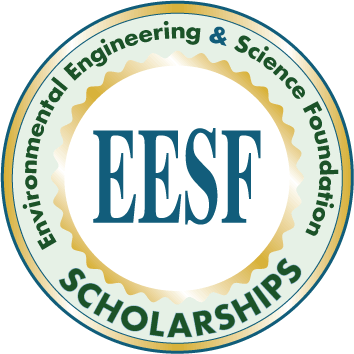Paul F. Boulos Excellence in Computational Hydraulics/Hydrology Award*
*Formerly known as the Innovyze Excellence in Computational Hydraulics/Hydrology Award
2025 Paul F. Boulos Excellence in Computational Hydraulics/Hydrology Award Recipient
Dr. Mohamed Fathi Said
Advisor: Dr. Virginia Smith, Villanova University

Dr. Mohamed Fathi Said has expertise in surface hydrology, climate change studies, geomorphology modeling, and flood mapping, with a focus on both physics-based and Deep Learning (DL) applications.
His academic journey began in Egypt, where he completed his undergraduate and master’s degrees in civil engineering at Fayoum University. His master's work focused on addressing the critical challenges posed by limited and low-resolution data in surface hydrology. As a teaching assistant, Dr. Said educated future engineers through a diverse array of water resources courses, while also mentoring senior students on flood protection projects. Additionally, under the supervision of Dr. Ayman Awadallah, he participated in developing the Egyptian Water Resources Plan.
Driven by his passion for hydrology, Dr. Said pursued his doctoral studies at Villanova University under the guidance of Dr. Virginia Smith. His research focused on predicting long-term geomorphological dynamics of rivers, a challenge that had long been hindered by the high computational costs of traditional modeling tools. His innovative work led to the development of a novel integrated DL framework for predicting spatiotemporal dynamics of flood events and their corresponding bed changes. This breakthrough achieved prediction speeds 4700 times faster than traditional physics-based models, marking a significant advancement in the field.
Dr. Mohamed Fathi Said has embarked on a new chapter in his career as an Assistant Professor in the Civil Engineering Department at Florida Gulf Coast University (FGCU). In this role, he aims to inspire future engineers and advance environmental and water resources engineering through innovative research solutions.
Past Recipients
Year |
Recipient |
Advisor |
School/University |
2024 |
Md Fahim Salek |
Dr. Lauren Beckingham |
Auburn University |
2023 |
Zhoacheng Wang, Ph.D. |
Enrique R. Vivoni, Arizona State University |
Arizona State University |
2023 |
Tom JW Postma |
Catherine A. Peters, Ph.D., BCEEM; Michael A. Celia, Princeton University |
Princeton University |
2022 |
Noemi Vergopolan da Rocha |
Justin Sheffield |
Princeton University |
2021 |
Jonathan L. Bradshaw |
Richard Godfrey Luthy |
Stanford University |
2019 |
Dylan Wood |
Ethan Kubatko |
The Ohio State University |
2018 |
Ahmed Abokifa |
Pratim Biswas |
Washington University of St. Louis |
2017 |
Qian Zhang |
William P. Ball |
Johns Hopkins University |
2016 |
Jennifer Jefferson |
Reed Maxwell |
Colorado School of Mines |
2015 |
Amy Dale |
Elizabeth Casman and Gregory Lowry |
Carnegie Mellon University |
This award is given annually to recognize a student whose research contributes to the knowledge pool of in the area of Computational Hydraulics & Hydrology. The award selection will be based on original, innovative research of publishable quality and other factors listed below. Both Master's and Ph.D. students are eligible.
The award will consist of a plaque and a cash honorarium of $1,500 for the student and a plaque and cash honorarium of $500 for the major faculty advisor. A $500 travel allotment is provided to the student recipient to attend the American Academy of Environmental Engineers & Scientists (AAEES) Excellence in Environmental Engineering and Science Awards Luncheon. The award selection is administered jointly by a committee consisting of equal numbers of AAEES and AEESP members. The award is co-sponsored by Dr. Paul Boulos, BCEEM.
Eligible applicants will be judged based on the following criteria:
- academic program performance (35%),
- research accomplishment (35%),
- professional or community service (15%),
- purpose and goals (10%), and
- any other evidence provided (5%).
An applicant remains eligible up to one calendar year following graduation and receipt of the degree earned.
Complete nomination packages should include:
- Academic letter of recommendation from the faculty advisor of the applicant detailing the contributions of the research to the profession and also indicating that the applicant has completed all substantive requirements for the graduate degree sought, and has earned a minimum GPA of 3.3/4 in the current program,
- One additional academic letter of recommendation,
- Copy of a publication (or manuscript submitted for publication) derived from the subject research for which the applicant is the first author – 25 page limit,
- A professional resume of the student applicant, listing all professional affiliations, publications, honors, service, and relevant experience, and
- An applicant prepared statement of professional purpose in pursuing the graduate degree and goals for the first five years of professional practice – (limit 500 words).

